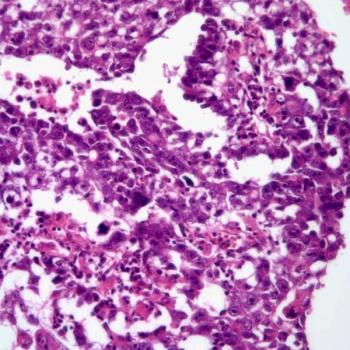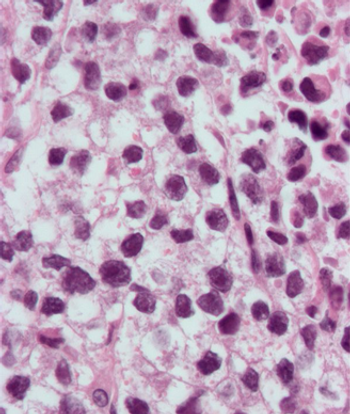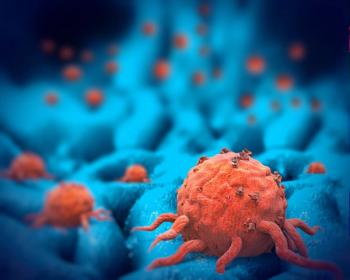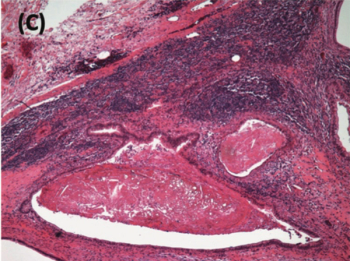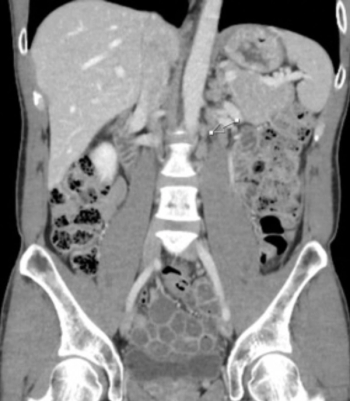
Oncology NEWS International
- Oncology NEWS International Vol 9 No 2
- Volume 9
- Issue 2
Getting Past the Fear: Doctors, Survivors Talk About Cancer
NEW YORK-Three years after being diagnosed with testicular cancer, Lance Armstrong bicycled 2,455 miles to win the Tour de France in 1999. St. Louis Cardinals baseball player Eric Davis was diagnosed with colon cancer in 1997, returned to the field 5 weeks after surgery, and hit a game-deciding home run in the playoffs. The crowd gave him a 5-minute standing ovation.
NEW YORKThree years after being diagnosed with testicular cancer, Lance Armstrong bicycled 2,455 miles to win the Tour de France in 1999. St. Louis Cardinals baseball player Eric Davis was diagnosed with colon cancer in 1997, returned to the field 5 weeks after surgery, and hit a game-deciding home run in the playoffs. The crowd gave him a 5-minute standing ovation.
The two athletes, along with a panel of doctors, talked to the public about overcoming the fear of cancer during an interactive video webcast sponsored by the Coalition of National Cancer Cooperative Groups.
Mr. Armstrong said his battle with cancer started in October 1996 when he was diagnosed with advanced testicular cancer that had spread to his lungs and brain. The tumor was removed the morning after I was diagnosed, and I started therapy the following Monday. I was 24 years old, and I felt like I had a lot to donot in cycling but in life. I definitely reached out for help. I was lucky. I had a lot of people helping me look for information. Its a rare illness, but not so rare that you dont find anybody. I knew some folks whod had it, and I was able to talk to them.
Mr. Armstrong kept preparing for the big race. I rode through the chemotherapy. The first two treatment cycles were not so hard on me, but for the last two, I didnt feel very good. Three years later he became the first American riding for an American team to win the Tour de France in 96 years.
Lance Armstrong Rolls Out Cycle of Hope Campaign
The Lance Armstrong Foundation and Bristol-Myers Squibb have teamed up to launch Cycle of Hope, a national cancer education campaign designed to reduce fear and motivate people to seek an early diagnosis and treatment. Starting this month, consumers can request a free Cycle of Hope information kit by calling 1-877-717-HOPE (4673) or by visiting the campaigns website at
In June 1997, baseball veteran Eric Davis was diagnosed with colorectal cancer. He was successfully treated with surgery and chemotherapy. But when he first found out, Mr. Davis recalls, he was shell shocked.
I had to quickly regroupto worry about myself, my wife, my two girls. My support system came from friends and familyand, as a professional athlete, I got more support than the average person, Mr. Davis said. I dont know if the cancer is ever going to come back, but its not going to stop me from living my life. I continue to find reasons to keep fighting and thats what survivors have to do, to find a reason to live, because its easy to give up.
The Physicians View
The physicians on the panel were asked what they recommend for getting past the fear of cancer. Michael OConnell, MD, professor of medical research and consultant in the Division of Medical Oncology, the Mayo Clinic, suggested the navigator concept.
Its one of the most promising approaches, one that Lance brought up. If the depressed person could be put into contact with another person, a navigator, who has gone through the diagnosis and treatment, has walked the walk, so to speak, that individual can be of tremendous support in a different way than any doctor or nurse can, Dr. OConnell said.
Larry Norton, MD, director of the Lauder Breast Center, Memorial Sloan-Kettering Cancer Center, was asked what he says to patients when he must give them bad news.
I very rarely give bad news, he replied. In a sense, we identify problems and we talk immediately about what we are going to do to tackle those problems. Being active, gathering information in terms of attacking this disease in a positive way, thats the most important thing. The athletes on this program have all said the same thing. You identify a problem. You attack it. You approach cancer like you approach any problem in life. You get in there to win.
Concentrating on an active plan that includes information gathering, Dr. Norton said, will help dissipate the fear. But he added a qualification about the Internet.
There are a lot of wonderful cancer information sitesthe NCI and some other organizations are very reputable sources. But there are some sources that are not quite so reputable. I always tell people, if somebody gives you information, you always have to askhow do you know? Where is this information coming from? The best sources of information about treatments, he said, are the reports of the clinical trials of that treatment, not expert opinion, but the results of carefully done experiments.
Maurie Markman, MD, director of the Cleveland Clinic Taussig Cancer Center, urged physicians to sit down and take the time to address patients fears, and provide them with background information that will help them cope.
And along with talking about treatment and side effects, you talk to them about getting on with their life, he said. He noted that some patients will have significant clinical depression after a cancer diagnosis, and these patients would benefit from antidepressants or a psychiatric consultation.
Several webcast participants brought up the fears some men have about appearing weak or afraid, fears that prevent them from being screened or from getting information or support. We have to get past this feeling, Mr. Davis said. Since my diagnosis, more and more men have approached me about my symptoms and asked what they should dobecause they have similar symptoms. Mr. Davis said that he hoped his example would help others.
Bruce Roth, MD, chief of solid tumor oncology, Vanderbilt University Medical Center, agreed that men are becoming less reluctant to seek help, and that one of the reasons is the willingness of others to speak about their disease.
Big name people are coming out and saying they had prostate cancer, and commenting about the side effects of therapy. If Norman Schwarzkopf can talk on national TV about his prostate cancer, I think its probably okay for the rest of us to talk about it, too.
Articles in this issue
about 26 years ago
Neoadjuvant Docetaxel Increases Response Rate in Large Breast Tumorsabout 26 years ago
Faslodex, a Pure Antiestrogen, Shows Antitumor Activityabout 26 years ago
Tumor-Associated Proteases Predict Outcome in Node-Negative Patientsabout 26 years ago
Paclitaxel/Herceptin Effective in Metastatic Breast Cancerabout 26 years ago
Conservative Surgery Alone Not Sufficient to Prevent RecurrenceNewsletter
Stay up to date on recent advances in the multidisciplinary approach to cancer.


